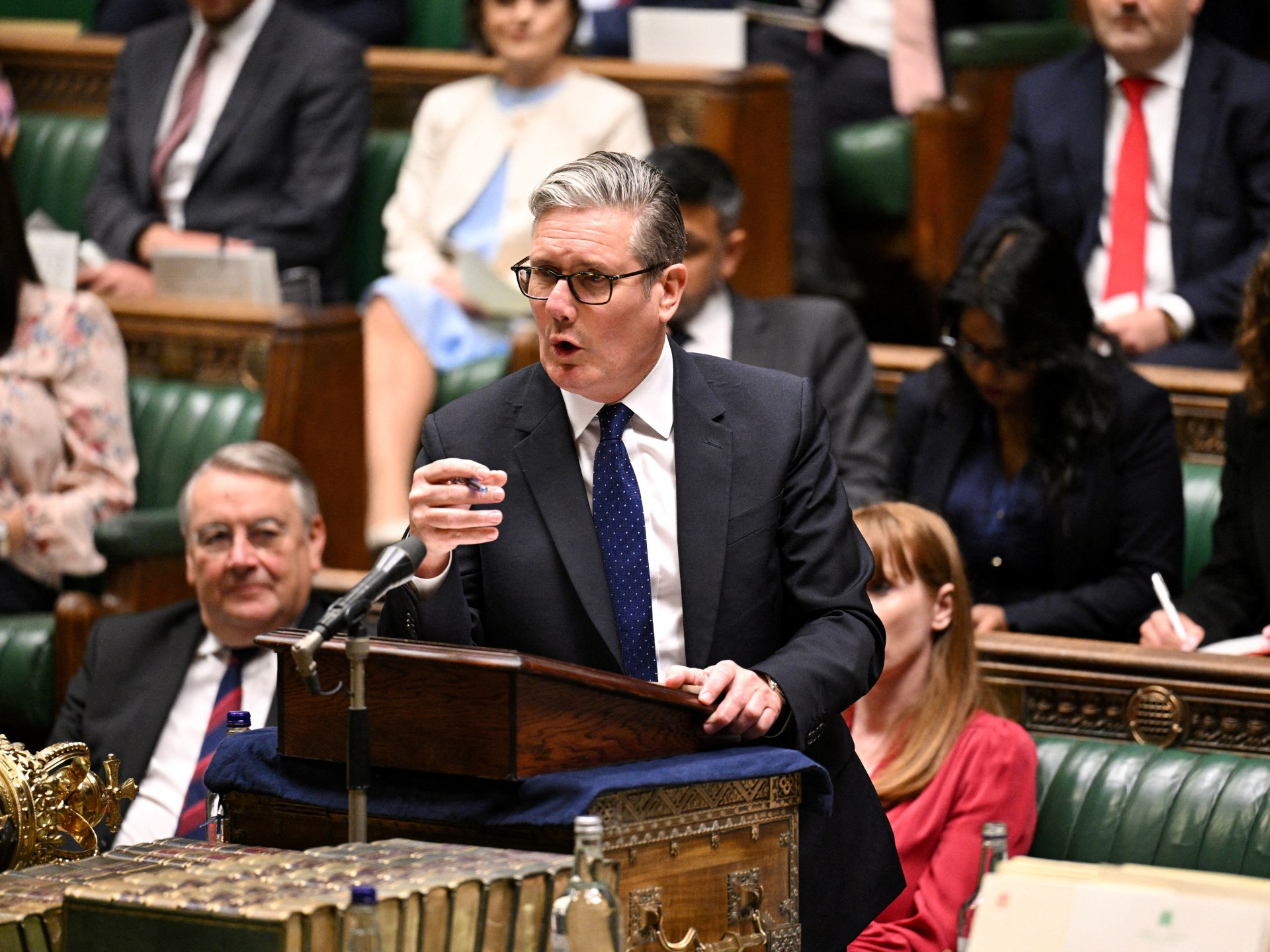Following a significant uprising by MPs, the UK government has abandoned its controversial plans to reduce disability and sickness benefits, a blow to the authority of Prime Minister Keir Starmer.
The climbdown on Friday raises questions about Starmer’s political acumen and the direction of the ruling Labour party. It is his third U-turn in less than a month.
The government confirmed concessions had been made to 126 rebel MPs who had threatened to scuttle the proposed changes just days after Starmer insisted he would continue with the reforms.
The turnaround comes just before Starmer’s anniversary, which Labour struggled to win back after 14 years of opposition to the Conservatives.
According to a spokesperson for Number 10, the government “listened to MPs who support the principle of reform but are concerned about the pace of change for those who already enjoy the support of the system.”
A bill that would have tightened eligibility for a significant disability benefit, removing the Personal Independence Payment from hundreds of thousands of people with chronic physical or mental illnesses, caused the most angst. Under the plans, people on low incomes would receive an additional health-related benefit as well.
The proposed changes, according to the government, would help people find employment while preserving a safety net for those who can never work. A welfare bill that has grown since the COVID-19 pandemic would also be a savings of an estimated 5 billion pounds ($6.8 billion) annually.
However, many Labour lawmakers objected to the proposed changes, which according to the Institute for Fiscal Studies estimate will reduce 3.2 million people’s income by 2030.
Due to Friday’s backturn, the welfare reforms-related Universal Credit and Personal Independence Payment (PIP) Bill is likely to pass a parliamentary vote scheduled for next week.
Care Minister Stephen Kinnock said the concessions include a “staggered approach” to the reforms, which will be announced in parliament later on Friday.
This means that only new claimants will be able to meet the proposed narrower eligibility requirements, not those who have already received benefits.
policy reversals
Chancellor Rachel Reeves struggled to generate growth from a sluggish UK economy during her turbulent 12 months in office.
Following widespread criticism, including from its own MPs, the government announced on June 9 that it had reversed a policy that would have eliminated a million pensioners’ winter heating benefits.
Elon Musk, a billionaire in the United States, became aware of a landmark UK child sex exploitation scandal that had caught the attention of Starmer less than a week later, and Starmer made the announcement of a national investigation.
Prior to now opposing calls for an investigation into the so-called “grooming gangs,” which saw girls as young as 10 being raped by various male groups, Starmer had favored a number of local investigations.
The prime minister should be able to pass any legislation through parliament thanks to the vast majority of his 165 MPs.
However, many of his own MPs criticize the disconnect between Labour’s traditional centre-left principles and Starmer’s leadership, which is focused on preventing the rise of the far-right Reform UK party.
The disability cuts and the planned winter fuel shortages are what made Labour’s reputation stand for fairness, according to Steven Fielding, a political scientist and professor at Nottingham University.
He continued, noting that Labour’s tightening of employment rights and investment in housing and green industries are also overshadowed.
Labour is losing voters to Reform, according to a YouGov poll of more than 10,000 Britons this week, but it also loses supporters to the Liberal Democrats and the Greens on the left.
Fielding remarked, “They’ve been making so many forced errors.”
Source: Aljazeera

Leave a Reply